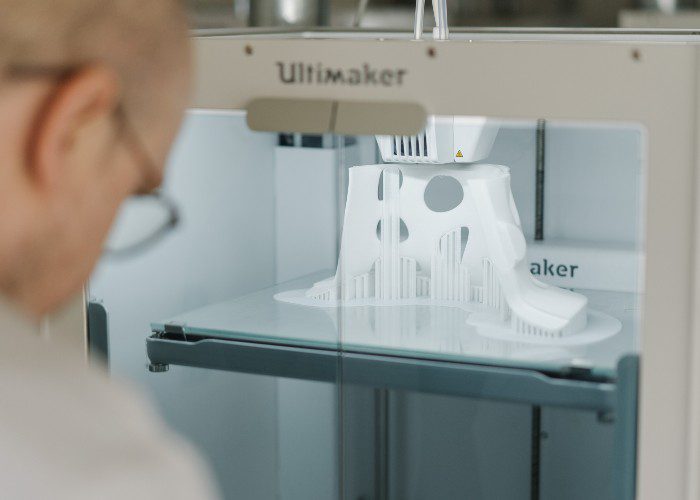£14 MILLION awarded to projects that harness digital technology to drive energy efficiency, productivity and growth across key manufacturing industries
- £14 million awarded to projects that harness digital technology to drive energy efficiency, productivity and growth across key manufacturing industries
- Projects include sustainable 3D printing at scale, digitising century old baking techniques and using AI to improve steel production efficiency
- Combined, the projects could create 1000 jobs across the UK and save 300,000 tonnes of CO2 emissions, the same as taking 65,000 cars off our roads
3D printing at record scale, AI to make steelmaking more productive and using big data to make century-old baking machinery more efficient are among the projects awarded a combined £13.7 million in Government funding to help improve energy efficiency, productivity and sustainability of manufacturing processes.
The Sustainable Smart Factory Competition, led by UKRI, provides funding for projects that harness digital innovations, such as AI, big data and virtual reality, to boost energy and carbon efficiency, while driving growth for manufacturers. The projects awarded funding aim to optimise the use of materials, reduce and reuse waste, or lower energy consumption to increase sustainability in production.
Among the 12 projects awarded funding today as part of the Made Smarter Innovation Challenge are:
- Smart and Sustainable Manufacturing for Baking Industry, led by Rakusen Limited – using AI to improve the consistency of the products produced by their century old baking machinery and helping reduce energy consumption by 60 per cent.
- LEAD Factory, led by Photocentric – the first technology that will enable products to be 3D printed at scale using recycled materials.
- WasteMap, led by Topolytics – using machine learning to develop a visual map of useful, reusable manufacturing products that can be extracted from our waste system.
- Reducing Energy Consumption and Material Loss in Steel Production Using Predictive Machine Learning, led by Deep.Meta – using machine learning to boost sustainability in the production of steel by predicting where inefficiencies lie before they happen.
- INSPIRE by Pragmatic Semiconductor – tackling global semiconductor shortages by using AI to optimise manufacturing productivity and efficiency.
- Smart People + Smart Process = Smart Factory, led by Raynor Foods Limited – turning sustainability into a game at the Raynor Foods sandwich factory to enable staff to see and then act on their energy use and CO2 footprint in real time.
Industry Minister Jackie Doyle-Price said:
“Creating and adopting the latest in digital technology solutions will be key to the continued success of our manufacturing sector. It is now critical that companies in industries as varied as baking to advanced robotics are maximising their potential using technology such as AI and virtual reality.
“The projects awarded funding today will cut energy consumption and boost growth for businesses in regions right across the UK, while helping our world leading manufacturers keep pace with ever growing global competition.”
It is estimated the projects could create 1,000 jobs in the three years after their completion, while reducing manufacturing CO2 emissions by 300,000 tonnes a year – the equivalent to taking nearly 65,000 cars off our roads.
The successful project consortiums range from two to 10 participant organisations each, making a combined 55 organisations taking part. These included participants stretching from Scotland to the South West and from Northern Ireland to East Anglia. They are made up of both SME and large manufacturers as well as technology developers, Universities and Research & Technology organisations.
Chris Needham, Innovation Lead in the Made Smarter Innovation Challenge said:
“Effective digital technologies can have a substantial impact on the manufacturing sector, bringing outdated, inefficient and unproductive products and processes up the standards needed for a net zero industry of the future. It’s clear from the wide range of applications we received just how far waste and energy issues extend across different industries.
“The successful applicants clearly demonstrated real innovation and showed just how the right use of data and technology can make a significant difference to businesses. We now look forward to working alongside them to deliver successful outcomes.”
The £147 million Made Smarter Innovation Challenge supports the transformation of UK manufacturing by pioneering the development and integration of new and existing industrial digital technologies, including artificial intelligence and virtual reality. The challenge helps take the risk out of innovation for UK manufacturers and supports the development of technologies that can be exploited commercially.
Science Minister Nusrat Ghani said:
“The digital innovations we are backing today could help manufacturers of products as diverse as steel to semiconductors boost growth, create high quality jobs and enhance energy efficiency.
“Through collaboration between leading UK researchers, technology firms and manufacturers, these innovations will ensure British industry remains internationally competitive, while bringing benefits to businesses in regions across the UK.”
